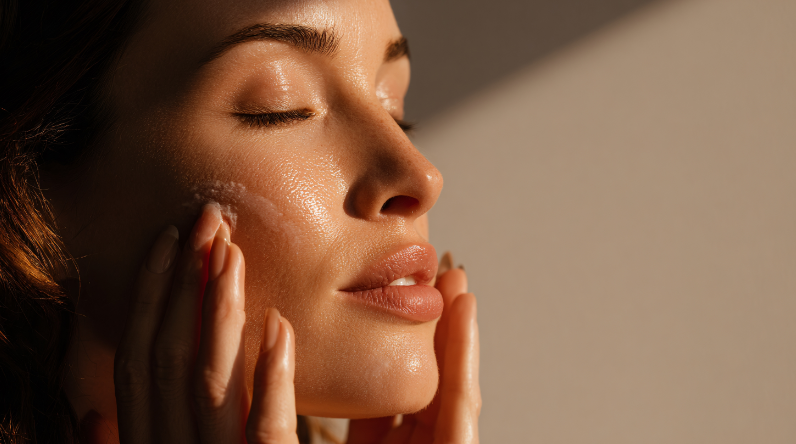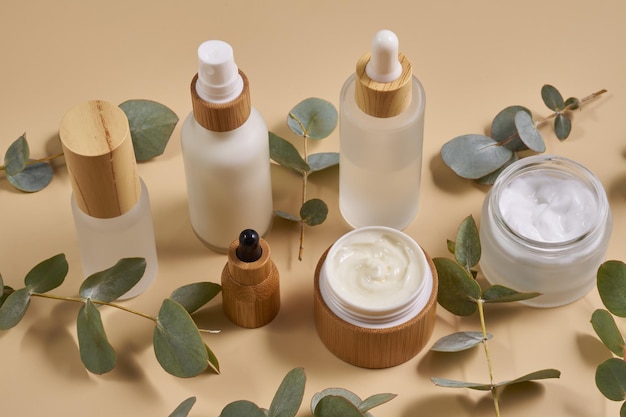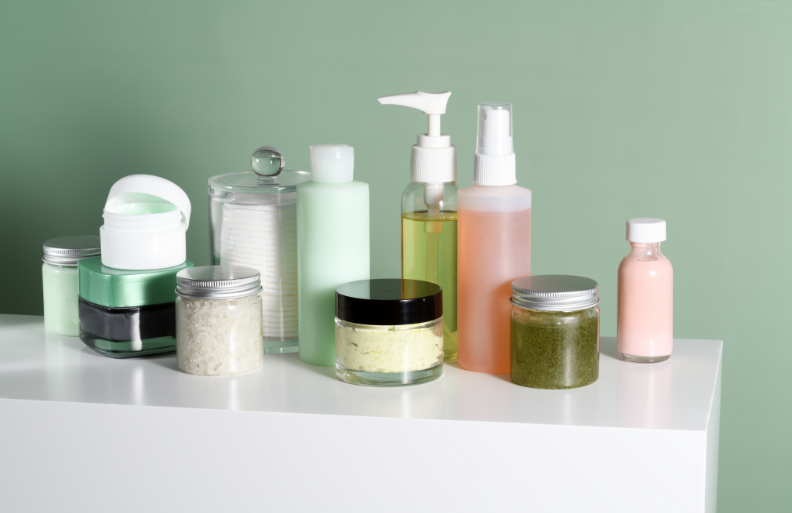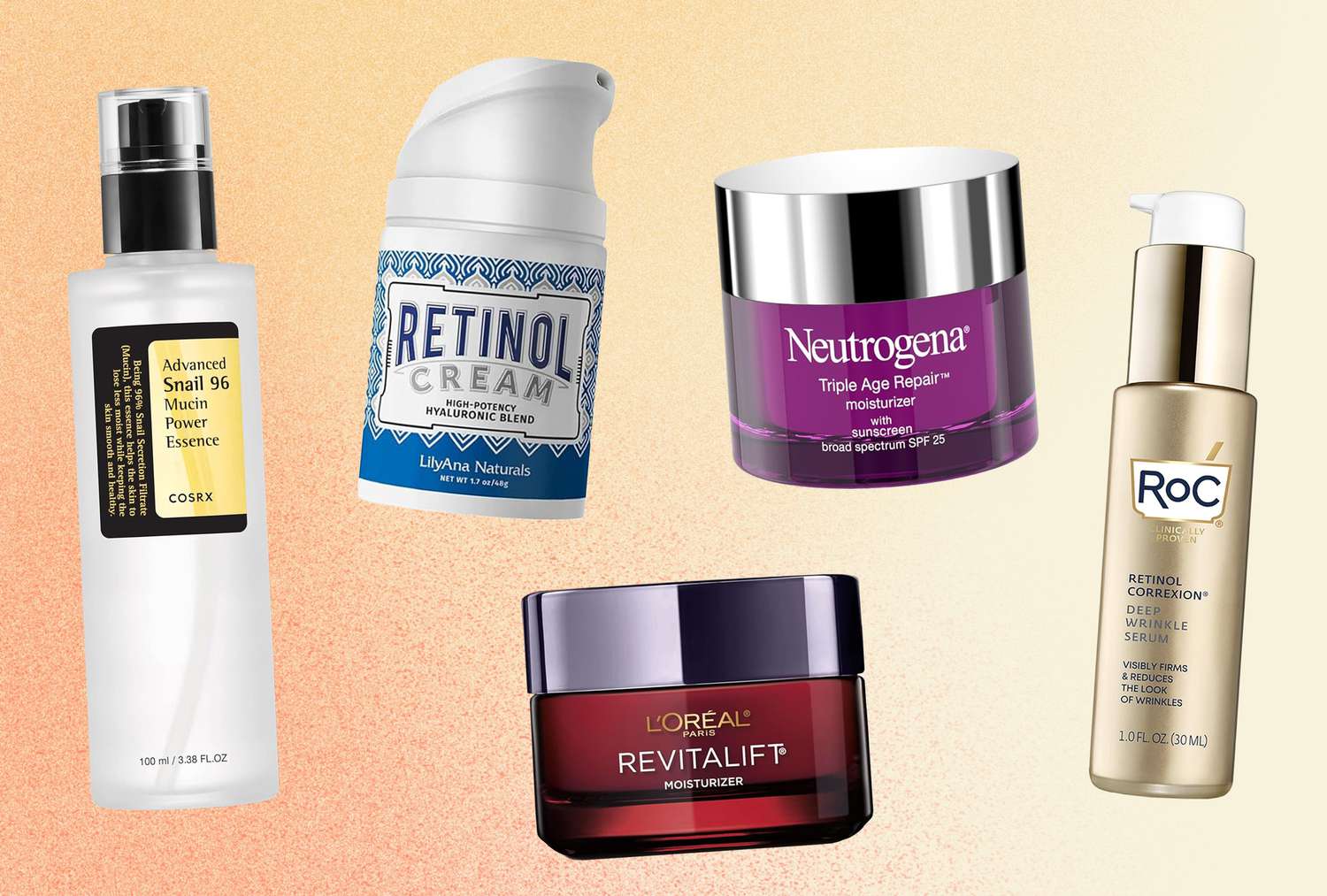
Date: 07 Oct 2025
Let’s be honest: aging is inevitable, but looking older than your age? That’s optional. With countless creams claiming to "reverse time," it’s hard to separate hype from what’s truly effective.
The good news is, dermatology and cosmetic science have come a long way. Today, we have access to clinically proven ingredients that can reduce wrinkles, firm skin, and restore a youthful glow.
What to Look for in an Anti‑Aging Cream
When evaluating an anti-aging cream, look for active ingredients with solid clinical or dermatological backing. Below are four heavy hitters you should prioritize. (Later, we’ll also cover bonus ingredients that complement these and boost efficacy.)

Retinol – The Gold Standard for Wrinkle Reduction
Retinol (a vitamin A derivative) is one of the most well-researched topical actives for aging skin. Clinical studies show it:
- Accelerates cell turnover (shedding old skin, revealing fresher skin)
- Stimulates collagen and elastin production
- Fades fine lines, improves texture, and lightens discoloration
However, retinol can also cause irritation, dryness, or peeling when introduced too aggressively. To use it safely:
- Start slow (e.g. twice per week), increasing frequency over weeks
- Use a low concentration (e.g. 0.2% or 0.3%) at first
- Always pair with a moisturizer and use sunscreen the next morning
- If irritation occurs, reduce frequency or buffer with a moisturizer
Because of its potency and evidence base, many dermatologists call retinol the “benchmark” anti-aging ingredient.
Peptides – Signals for Skin Rejuvenation
Peptides are short chains of amino acids that send “messages” to skin cells. They are known to:
- Stimulate collagen, elastin, or other structural proteins
- Improve firmness and reduce fine lines
- Be gentler than retinoids, making them suitable for more sensitive skin
Look for peptides such as Matrixyl (palmitoyl pentapeptide), copper peptides, or palmitoyl tripeptide. Because peptides act via signaling, results tend to be gradual and cumulative (over months).
Tip: Peptides work best when paired with good hydration and barrier-supporting ingredients.
Hyaluronic Acid – The Hydration Hero
Hyaluronic acid (HA) is a humectant: it attracts and holds water. When used topically:
- It can bind up to 1,000× its weight in water, giving a plumping, smoothing effect
- It helps reduce the appearance of fine lines caused by dehydration
- It bridges active ingredients to deeper layers by improving skin’s moisture gradient
Because hydration is a foundation for healthy, resilient skin, HA is an ideal complement to retinol or peptides. Use HA under your anti-aging cream to enhance absorption and reduce irritation.
Vitamin C – The Brightening Antioxidant
Vitamin C (ascorbic acid and its derivatives) is a powerful antioxidant and collagen booster. Its roles include:
- Neutralizing free radicals from UV exposure and pollution
- Stimulating collagen synthesis
- Brightening discoloration and evening skin tone
When shopping, look for:
- Stable forms (L-ascorbic acid, magnesium ascorbyl phosphate, etc.)
- Concentrations between ~10–20% (too low may be ineffective; too high may irritate)
- Opaque, air-tight packaging (light and air degrade vitamin C)
Best practice: apply vitamin C in the morning, before sunscreen, so it helps combat daily oxidative stress.
Other Beneficial Anti-Aging Ingredients

Besides the key four, look for these supporting ingredients:
- Niacinamide: Reduces redness, improves elasticity, and strengthens the skin barrier.
- Ceramides: Help restore the skin’s natural protective layer.
- Antioxidants (e.g. green tea extract, resveratrol): Defend against oxidative stress.
- AHAs (Alpha Hydroxy Acids): Promote gentle exfoliation and skin renewal.
- SPF: Not technically an ingredient in creams, but daily sun protection is essential for any anti-aging routine.
Ingredients to Avoid in Anti-Aging Products
Not all skincare ingredients are beneficial—some can do more harm than good, especially for aging or sensitive skin.
- Fragrance and essential oils: Often cause irritation and allergic reactions.
- High alcohol content: Can dry and weaken the skin barrier.
- Sulfates: Harsh cleansing agents that strip away moisture.
- Incompatible combinations: For example, mixing strong acids with retinol can lead to sensitivity and peeling.
Always patch-test a new product before applying to your entire face.
Best-Selling Anti-Aging Creams in 2025
Now that you know what to look for, here are some of the most popular and effective anti-aging creams in 2025, praised for their powerful ingredients and visible results.
- L'Oreal Revitalift Laser Renew Anti-Ageing Night Cream; Infused with high-performance active ingredients, this night cream deeply hydrates and helps repair skin barriers, reducing the visible signs of ageing. Wake up to a refreshed and revitalized complexion with smoother and firmer skin.
- Olay Night of Olay Firming Cream; Olay Night of Olay Firming Cream is formulated with powerful ingredients such as glycerin and niacinamide that help to improve the overall appearance of your skin. This night cream is suitable for all skin types and is dermatologically tested.
- Paula’s Choice CLINICAL 1% Retinol Treatment; This is a high-strength retinol product suited for experienced users. It also contains soothing ingredients like licorice extract and peptides to balance its potency. If you’re serious about wrinkle reduction and your skin can tolerate stronger actives, this is a fantastic option.
- CeraVe Skin Renewing Retinol Serum; Formulated for beginners, this gentle serum features encapsulated retinol, ceramides, and niacinamide. It’s ideal for sensitive or mature skin that needs barrier support alongside anti-aging benefits. It absorbs quickly and layers well under moisturizer.
- La Roche-Posay Pure Retinol B3 Serum; This is a powerful anti-ageing solution designed to target visible signs of ageing such as fine lines, deep wrinkles, uneven skin tone, and texture irregularities.
- Neutrogena Rapid Wrinkle Repair Retinol Serum; This serum combines retinol with hyaluronic acid and a glucose complex to visibly reduce wrinkles and improve tone. It’s widely available and budget-friendly. Some users may experience dryness, so it’s important to moisturize after applying.
How to Build an Effective Anti-Aging Routine
To get the most from your anti-aging products, consistency and order of application matter.
Morning Routine
- Gentle cleanser
- Vitamin C serum
- Hyaluronic acid serum (optional)
- Moisturizer with peptides or niacinamide
- Broad-spectrum SPF 30 or higher
Evening Routine
- Cleanser
- Hydrating toner (optional)
- Retinol or peptide cream (start slow)
- Barrier-repair moisturizer (look for ceramides and hyaluronic acid)
Pro Tip: Introduce new products one at a time every 2–3 weeks. And always apply sunscreen—retinol and other actives can increase sun sensitivity.
Anti-aging skincare doesn’t require miracles, but consistency and smart formulation. The ingredients that actually work—retinol, peptides, hyaluronic acid, vitamin C—are your allies. Avoid overpromised hype, test carefully, and support your skin with hydration, barrier care, and sun protection.
FAQs
Q1: What is the best age to start using anti-aging creams?
The ideal time to start is in your mid-to-late 20s or early 30s when collagen production naturally begins to decline. However, it’s never too late to start—anti-aging ingredients can benefit skin at any age.
Q2: Can I use retinol and vitamin C together?
Yes, but it's best to use vitamin C in the morning and retinol at night. This minimizes irritation and optimizes their respective benefits.
Q3: How long before I see results from anti-aging creams?
Most users see noticeable improvement in 8–12 weeks, especially with retinol and peptides. However, results can vary depending on consistency, skin type, and product strength.
Q4: Is it safe to use anti-aging products during pregnancy?
Some ingredients, like retinol, are not safe during pregnancy or breastfeeding. Always consult a dermatologist or healthcare provider before using active skincare while pregnant.





